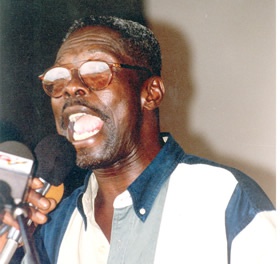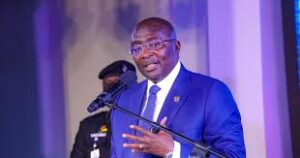Ending ‘Galamsey’ Requires Just 1,060 Soldiers, Says Tony Aidoo

Former Senior Presidential Aide and political analyst Dr. Tony Aidoo has called for a decisive, focused military intervention to bring Ghana’s illegal mining crisis, commonly known as ‘galamsey,’ to an end. Speaking on July 17 on JoyNews, Dr. Aidoo argued that deploying just over 1,060 soldiers in strategic operations could dismantle illegal mining networks within a matter of months, urging the government to adopt this approach if it genuinely intends to combat the widespread environmental devastation.
Dr. Aidoo expressed concern over the current use of the military in internal security duties such as election management, emphasizing that the armed forces’ core responsibilities should instead focus on safeguarding national resources and security threats like galamsey. “We invest heavily in our soldiers — clothing, feeding, housing them — yet illegal mining continues to ravage our forests and water bodies unchecked,” he remarked. “This is where their efforts should be concentrated.”
His comments come amid growing public outcry over the extensive environmental damage wrought by galamsey activities. Major rivers including the Pra, Ankobra, and Birim have been polluted, while large areas of farmland and forest reserves have been destroyed. This destruction has severely affected water treatment facilities, such as those run by the Ghana Water Company Limited, increasing the difficulty and cost of supplying clean water to urban areas.
Economists have estimated that the damage from galamsey has risen to approximately 18% of Ghana’s Gross Domestic Product (GDP) as of December 2024, highlighting the enormous economic strain the country faces from unchecked illegal mining.
Drawing on ideas shared by other prominent figures, including NPP founding member Dr. Nyaho Nyaho-Tamakloe, Dr. Aidoo proposed a well-planned military strategy to decisively remove illegal miners. “What’s needed are two battalions, totaling about 1,000 soldiers, supported by two engineering platoons, bringing the total force to around 1,060 personnel,” he explained. “These forces would target illegal mining hotspots in forests and rivers to clear and hold those areas.”
He elaborated on the execution of this plan, describing a “hit-and-hold” tactic designed to create a lasting deterrent. “At each cleared site, a team of about 50 soldiers would remain stationed for three weeks. This sustained presence will discourage illegal miners from returning because they won’t know when or if the troops have left.”
This tactical unpredictability is intended to prevent miners from anticipating troop movements and reoccupying cleared zones. The goal is to make illegal mining economically and operationally unviable in these sensitive areas.
The Ghana Armed Forces (GAF) have previously engaged in anti-galamsey campaigns such as Operation Vanguard (launched in 2017) and Operation Halt (re-launched in 2021 and intensified in 2025). These operations have involved seizing mining equipment and demolishing unauthorized mining sites, particularly those damaging water bodies and forest reserves.
Despite these efforts, challenges persist:
-
Corruption Allegations: There have been troubling reports of collusion between some military personnel and illegal miners, with seized equipment disappearing and arrested miners being released under suspicious circumstances. Recently, Defence Minister Dr. Edward Omane Boamah publicly commended a soldier who refused bribes, signaling the government’s fight against corruption within the ranks.
-
Political Interference: Observers and civil society groups have pointed to political meddling as a barrier to effective military action, citing instances where politicians allegedly influence the release of illegal miners.
-
Temporary Gains: Critics argue military-led crackdowns often yield only short-term success, as illegal miners return once forces withdraw. Small-scale miners and community groups advocate for more holistic approaches that address the economic drivers behind galamsey.
The current NDC government has made ending galamsey a key priority. On July 15, 2025, President John Dramani Mahama declared the crisis a “national emergency” and vowed to crack down on corrupt task forces exploiting the fight against illegal mining for personal gain.
The Ghana Coalition Against Galamsey (GCAG) has continually urged the government to follow through on its commitments, warning that the survival of Ghana’s natural environment and economy hinges on decisive action.
Dr. Aidoo cautioned the government that failure to act decisively would erode public confidence. “The goodwill the people of Ghana extended to the NDC risks being lost if the government fails to address galamsey and corruption effectively,” he warned. “Stopping illegal mining was an electoral promise — the government must not take Ghanaians for granted.”
His call highlights a broad national consensus on the urgency of tackling illegal mining. While his military-focused strategy faces challenges, including corruption and political interference, it reflects the deep frustration and demand for concrete solutions to protect Ghana’s environment and uphold the rule of law.
In sum, Dr. Aidoo urges the government to align the resources and mandate of the Ghana Armed Forces to confront one of the country’s most pressing threats, emphasizing that with the right strategy and commitment, ending galamsey is achievable.






